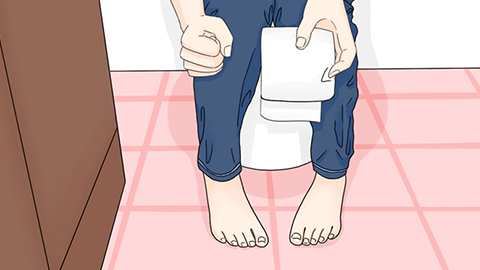Is bleeding from an anal fissure serious?
Generally, anal fissure bleeding is not considered serious if it is minimal, occurs occasionally, and stops on its own. However, if the bleeding is heavy, continuous, or accompanied by symptoms of anemia, it is more severe. If in doubt, it is advisable to seek medical consultation promptly. Detailed analysis is as follows:

If bleeding from an anal fissure only occurs during bowel movements, with a small amount of bright red blood appearing on the stool surface or on toilet paper, and stops spontaneously after defecation without associated symptoms such as dizziness or fatigue, this is usually caused by irritation of the fissure due to dry stools. By adjusting diet and maintaining soft bowel movements, the bleeding typically improves gradually and is generally not considered serious.
If the bleeding is heavy, with persistent dripping or even jet-like hemorrhage during bowel movements that does not stop on its own, or if symptoms of anemia such as dizziness, pallor, and fatigue develop after prolonged or recurrent bleeding, the condition may be more serious. This could result from a large wound, deeper vascular injury, or infection due to chronic non-healing fissures. Without timely intervention, anemia may worsen or the condition may deteriorate, indicating a more severe situation.
After experiencing anal fissure bleeding, closely monitor the amount of blood loss and your overall physical condition, and avoid straining during bowel movements. If bleeding persists or is accompanied by discomfort, prompt medical attention is recommended to prevent worsening of the condition due to delayed treatment.




